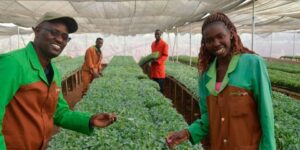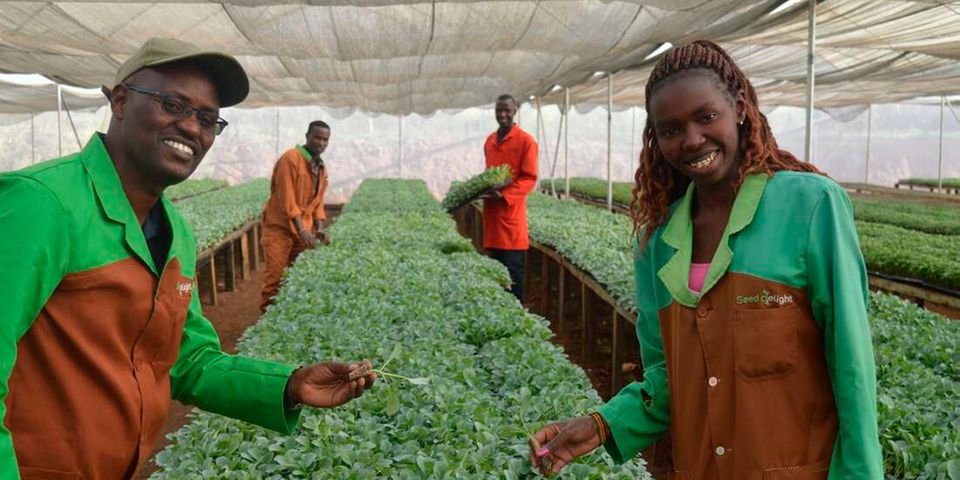
Steve Chege, the owner of the project, and 3 of his workers (Courtesy)
Agribusiness is an excellent venture that generates income without owning a farm. Any prospective farmer will want to gain experience operating a modest farm before expanding as he gains confidence while the business grows profitable.
Opportunity comes once
When a Narok resident discovered the prospect to earn millions from seedling production without making a huge investment, he did not give it a second thought before implementing the idea.
Steve Chege, the CEO and founder of Seed Delight Ltd, a seedling production enterprise, started the farm in 2018 after leaving his position as a consultant at Centum.
On the eight-acre farm in Lare, Njoro sub-county, thousands of seedlings grow in massive greenhouses.
Humble beginnings
Chege began as a humble vegetable farmer doing it as a side hustle, but obtaining certified seeds to grow proved to challenge for him.
He would have to travel from Naivasha to obtain them, which was quite expensive. They were all going for KES4 or KES5.
Chege identified and seized an opportunity in the seedlings sector. “I started with a single greenhouse that contained 160,000 seedlings.” “I then grew the company by investing KES 5 million from my savings and borrowing money from friends,” he stated.
Getting the ball rolling
Chege utilized the cash to construct seven more greenhouses, as well as other facilities such as water tanks and germination chambers, with the remaining monies going toward seed purchases and operational expenses.
Tomato, spinach, cabbage, capsicum, onions, collard greens (sukuma wiki), managu, and saget are among the seeds sown.
Besides, the farm propagates open-pollinated potato and avocado seedlings.
At the fruit seedlings farm, he propagates the Hass avocado cultivar and sells each for KES 200.
Smallholder farmers in Nakuru, Laikipia, Baringo, and Narok counties get the seeds.
Offers for free training
Chege also trains local farmers on correct farming methods during site visits. He is not charging at the moment since he wishes to publicize the methods.
The farm, however, is struggling due to high import costs for cocopeat from India, Sri Lanka, and Estonia.
“We’re having trouble because of high shipping costs and currency conversion,” Chege adds.
Another difficulty is that most farmers rely on rain-fed agriculture, which is inherently uncertain, thus they do not buy seedlings.
Source: Nation









